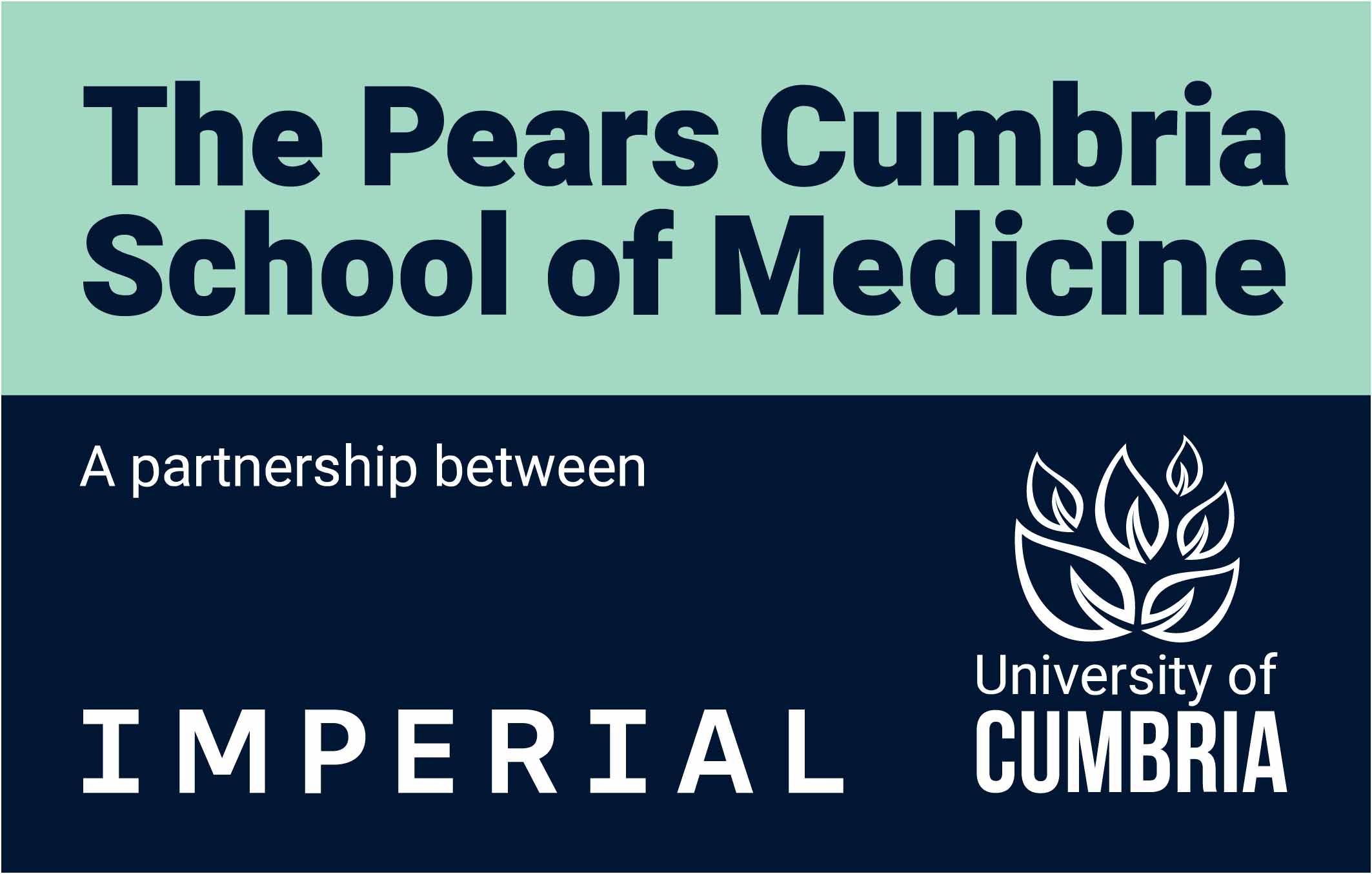
New Medical School Opens This Week in Cumbria
A first of its kind graduate-entry collaboration between the University of Cumbria and Imperial College London will see the launch of the Pears Cumbria School of Medicine (PCSM) this week. Located at the University of Cumbria Fusehill Street campus in Carlisle, the School will welcome its inaugural cohort of 58 students on 26 August.
The new medical school is a pioneering initiative, developed with philanthropic investment from the Pears Foundation, and is designed to address the chronic shortage of doctors in Cumbria. With a bespoke curriculum focused on prevention, digital innovation and community-based care, PCSM is designed to train doctors where they are most needed, right here in Cumbria.
For years, Cumbria has faced critical health inequalities, with staffing levels across the care pathway significantly below national average. Life expectancy varies by almost 20 years between the poorest and wealthiest wards in the county, and 68% of adults are overweight or obese. Hospital admissions linked to alcohol are significantly higher than national averages, with rates of 650 per 100,000 people in Cumbria compared to 571 nationally.
“The figures show just how Cumbria needs doctors who are trained with an understanding of the unique challenges our communities face,” said Professor Mary Morrell, Head of the Pears Cumbria School of Medicine. “PCSM is a taking a bold new approach; it has a regional focus and a bespoke curriculum, focused on prevention and innovation. As the School develops, it will target the use of large data models and AI to prepare students for practice using digital technology. We are proud to be working alongside our clinical colleagues to bring meaningful change to the people of Cumbria.”
Rooted in Local History
The school is located at the Fusehill Street campus, a site with deep ties to the region’s healthcare history. Once a workhouse in the 1800s, later a wartime hospital, and then Carlisle’s City Maternity Hospital until 2000, the campus has long served the people of Cumbria. Many local residents and PCSM team members were born on the very grounds where future doctors will now be trained.
While the medical school is based in Carlisle, the University of Cumbria’s broader commitment to regional health and education is reflected in its recent expansion of a new campus in Barrow-in-Furness. This development supports its mission to deliver place-based education across the county.
Professor Brian Webster Henderson OBE, Deputy Vice Chancellor at the University of Cumbria said:
“The creation of the Pears Cumbria School of Medicine represents a transformative moment for Cumbria. It exemplifies our commitment to place-based education and to addressing the real-world challenges faced by our communities. We are proud to be working with Imperial College London, the Pears Foundation and our partners to deliver a medical school that will change lives and improve health outcomes across the region.”
Professor Martin Lupton, Vice Dean (Education) for the Faculty of Medicine at Imperial College London added:
"Our unique partnership reinforces Imperial’s commitment to our Science for Humanity strategy which emphasises enabling talent, interdisciplinary collaboration and addressing societal challenges. It is bringing world-class education in Medicine to where it can make the greatest difference. We are proud to support a new model that not only trains excellent doctors but also strengthens the communities they serve."
The Pears Foundation is known for its long-term philanthropic investments in education and health, supporting initiatives that deliver deep community impact and systemic change.
Sir Trevor Pears, Executive Chair at the Pears Foundation said:
“It is one of the great advantages of being a family foundation that we can take the long view and make long-term investments in initiatives that we believe will have meaningful impact. The Pears Cumbria School of Medicine is a great example of this. We believe it will put Cumbria in the vanguard of the way that this country thinks about the training and recruitment of doctors, whilst ensuring they are placed where they are most needed. I feel incredibly strongly that this is nothing less than Cumbria deserves."
Investing in Cumbria’s Future
The School has been made possible through generous philanthropic investment from the Pears Foundation, whose long-term commitment to education and health is helping to shape a new future for the NHS in Cumbria.
The Pears Cumbria School of Medicine is a potential blueprint for other regions. By expanding medical training opportunities in the UK and delivering a bespoke programme aligned to the NHS ten-year plan, it offers a scalable model for other parts of the UK grappling with medical recruitment and retention challenges.
Notes to editors
Key facts:
- 58 graduate entry students start on 26 August 2025, including many from the North of England, and Cumbria and graduates from University of Cumbria.
- PCSM students will be based at the historic Carlisle Fusehill St campus at the University of Cumbria
- Students will graduate with a Bachelor of Medicine, Bachelor of Surgery (MBBS) degree awarded by Imperial College London
- 45% of students are from a widening participation background
- Over 20 scholarships (of £5,000) have been awarded to Year 1 students who met the contextual admissions criteria
Notes to editors:
Cumbria Revealed: A county of contrasts (Cumbria Community Foundation 2017): Life expectancy varies by 20 years between the poorest and wealthiest wards; 68% of adults overweight; worse hospital admissions due to alcohol, self-harm and suicide.
Cumbria and Districts Health Summary (OHID, 2022): alcohol -related admissions 658.1 per 100,000 (England 571.6): overweight/obesity prevalence 60.9%




